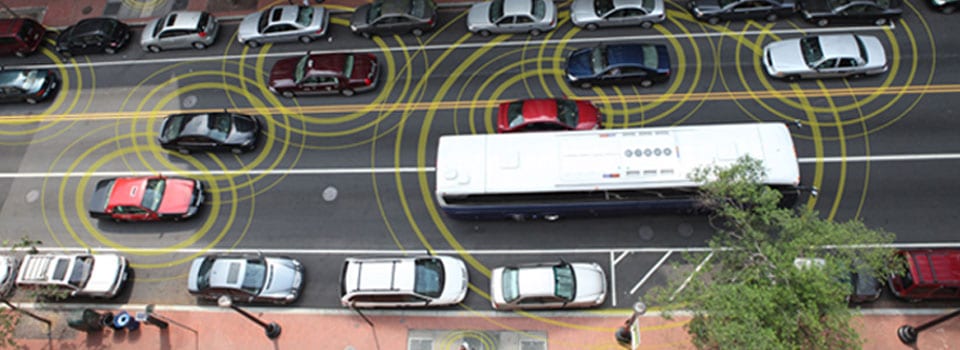We like to construct Hollywood friendly plots around a lot of the seminal moments in our collective history. For Civil Rights, we like to picture the integration of Little Rock High School, Rosa Parks’ courageous protest on a Montgomery bus or the March on Washington. For environmentalism, we talk about Rachel Carson’s Silent Spring or, maybe, the burning Cuyahoga River in Cleveland. (This vintage news footage of the 1969 fire calls it the fire that “sparked the environmental movement” without any apparent irony.) For automobile safety, we imagine Ralph Nader and the image of a 1972 crash test that shows the gas tank of the Ford Pinto exploding in a rear impact collision, engulfing both cars in flames. But those memories are often way oversimplified. Little Rock and the Montgomery bus boycott were just two battles in a fight for civil rights that went back to the end of the Civil War. Likewise, the Cuyahoga […]
Congress
Must Read: How Russian Hackers Stole the Nasdaq – Businessweek
If there’s one story you should read this week, its Michael Riley’s extensive report over at Businessweek on the 2010 compromise of systems belonging to the Nasdaq stock exchange, “How Russian Hackers Stole the Nasdaq.” The incident was extensively reported at the time, but not in great depth. Obviously, the parties involved weren’t talking. And Nasdaq’s public statements about the compromise woefully downplayed its severity, as Riley’s report makes clear. Among the interesting revelations: the Nasdaq may have fallen victim to a third-party compromise – similar to the hack of Target earlier this year. In the case of Nasdaq, investigators from the FBI, NSA and (eventually) CIA found discovered that the website run by the building management company responsible for Nasdaq’s headquarters at One Liberty Plaza had been “laced with a Russian-made exploit kit known as Blackhole, infecting tenants who visited the page to pay bills or do other maintenance.” What’s clear is […]
Cisco Eyes Security Services For Connected Cars
Connected vehicles are a big new area of investment. We saw evidence of that at the recent Consumer Electronics Show (CES) and we’re hearing a lot more about it this week, as carmakers strut their stuff at the North American International Auto Show. Security isn’t generally part of the conversation, but as we’ve noted here on more than one occasion: connected vehicles introduce a myriad of challenging security problems, from authentication to communications and system integrity, not to mention data privacy. [Read more Security Ledger coverage of connected vehicles here.] Now networking giant Cisco says that it sees a role for its technology in protecting vehicle area networks (VANs), just as the company’s networking equipment enabled and protected local and wide area networks (LANs and WANs) over the last two decades. In a blog post, Cisco said it is rolling out “a range of products and services” that it […]
Senator Asks Automakers About Cyber Security, Privacy Plans
Cyber attacks on so-called “connected vehicles” are still in the proof of concept stage. But those proofs of concept are close enough to the real thing to prompt an inquiry from U.S. Senator Ed Markey, who sent a letter to 20 major auto manufacturers asking for information about consumer privacy protections and safeguards against cyber attacks in their vehicles. Markey’s letter, dated December 2, cites recent reports of “commands…sent through a car’s computer system that could cause it to suddenly accelerate, turn or kill the breaks,” and references research conducted by Charlie Miller and Chris Valasek on Toyota Prius and Ford Escape. That research was presented in an August demonstration at the DEFCON hacking conference in Las Vegas. [For more on the security threats facing connected vehicles, check out this link.] “Today’s cars and light trucks contain more than 50 separate electronic control units (ECUs), connected through a controller area network […]
BitCoin’s Popularity Is Undermining Promises of Anonymity
The virtual currency Bitcoin has soared in value against the U.S. dollar in recent months, topping out a staggering $913 USD to 1 Bitcoin (or BTC) as of late Tuesday. The currency had many ups and downs since it was launched in January 2009. But its main attraction, all along, has been anonymity. Unlike any other online payment system, Bitcoin transactions – like cash transactions – cannot be traced back to specific individuals. Also like cash, they cannot be reversed. Both those factors give Bitcoin users the confidence that their online purchasing activity – whether computer hardware or contraband will remain private. But a group of researchers at two U.S. universities have released a paper that suggests reports of Bitcoin’s anonymity may (to paraphrase Twain) “be greatly exaggerated.” Specifically: the researchers found that, by culling a variety of open source data using public data from the Bitcoin Peer to Peer network and from […]





